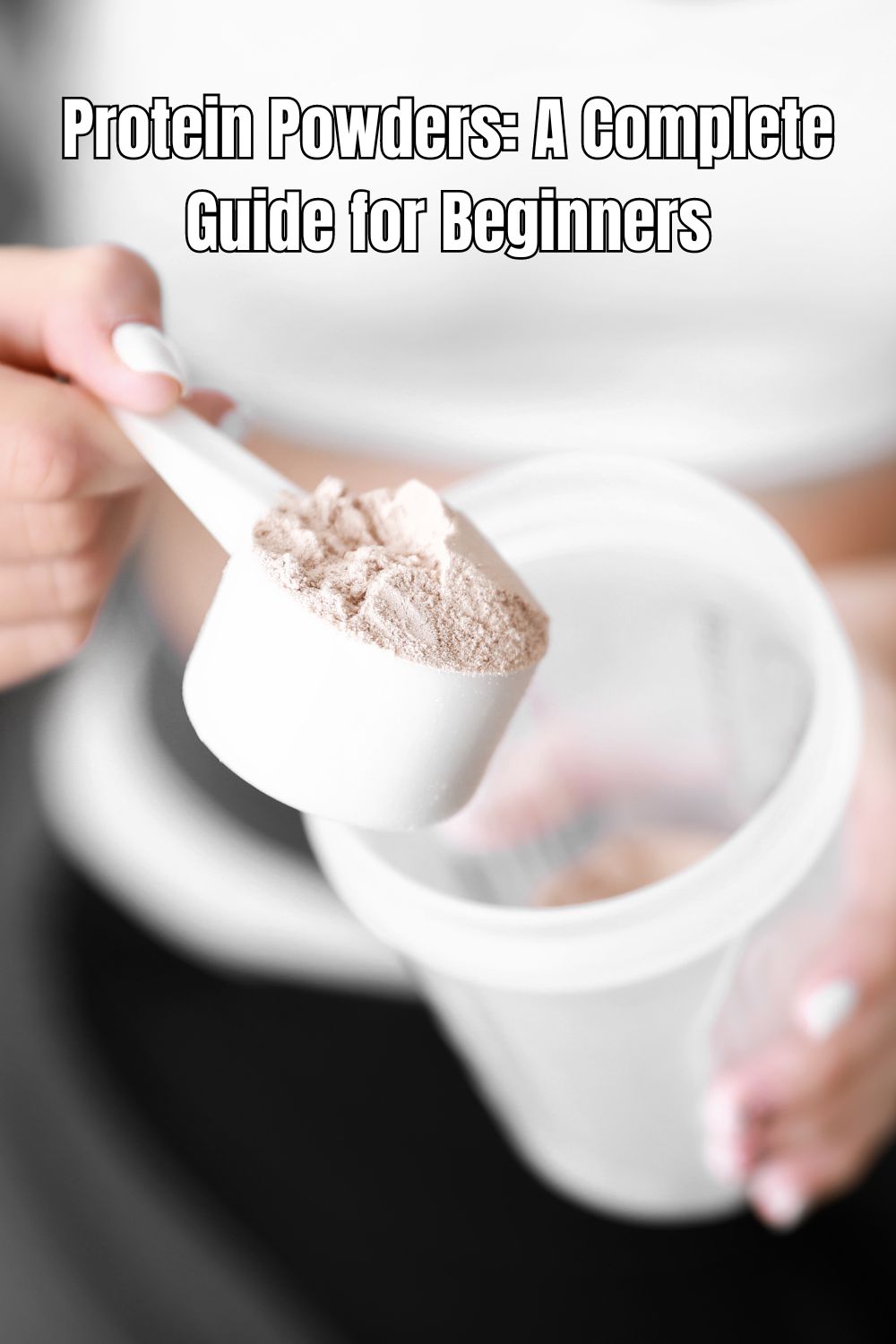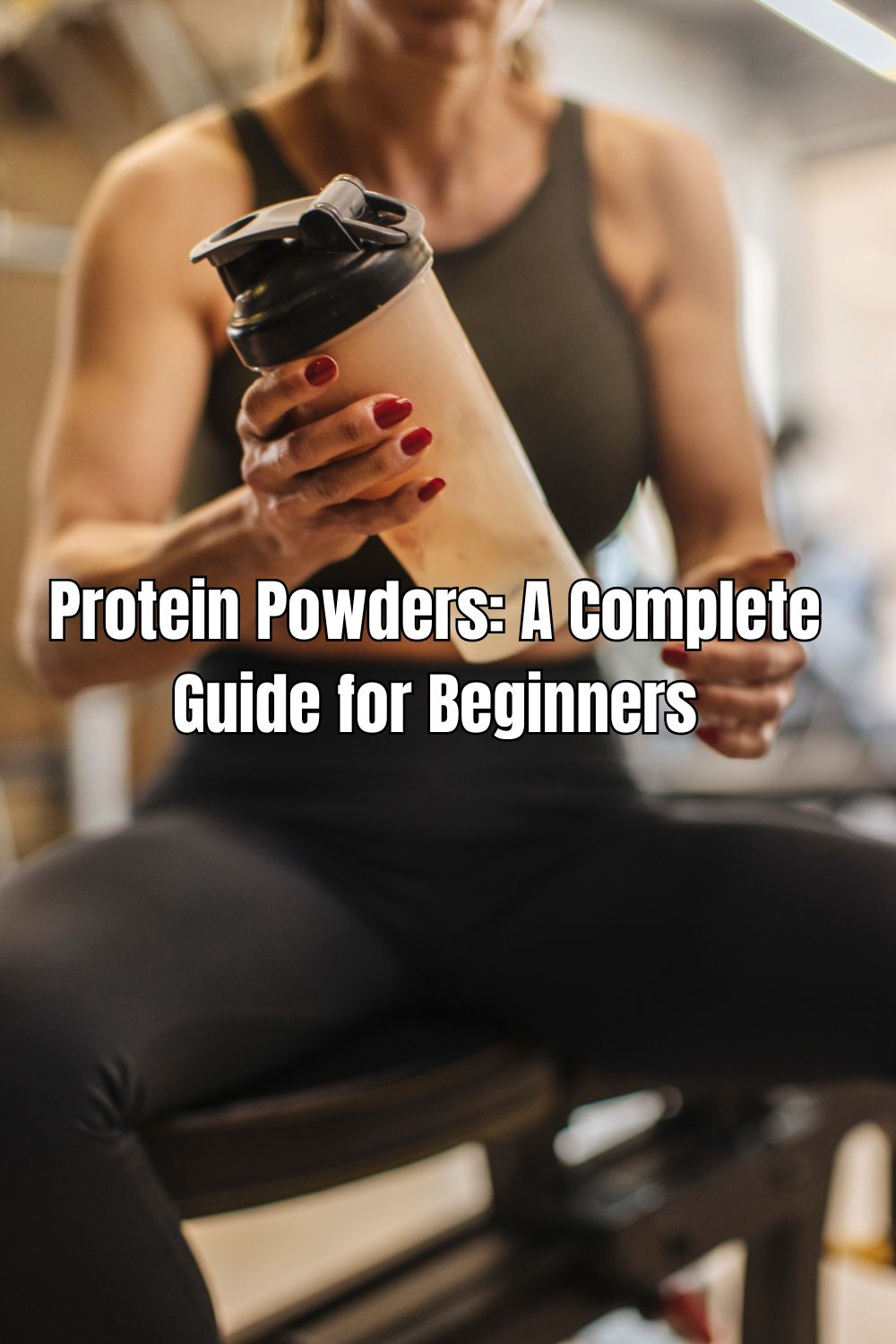Are you looking for the perfect Protein powder? Here is a complete guide for beginners and what to look for in them!
Protein Powders: A Complete Guide for Beginners
If you’re just starting your fitness or wellness journey, you’ve probably come across protein powders. Protein powders are supplements that are widely used because they offer many benefits, primarily to support muscle growth, aid in recovery, and help meet daily protein needs. So, whether you’re an athlete, trying to build muscle, or simply aiming to improve your diet, understanding the benefits of protein powder and how to choose the right one is essential for your progress.
While it’s important to get most of our nutrients from a balanced diet, protein supplements can serve as a convenient option for individuals with busy lifestyles or specific fitness goals. It’s a fast way to hit your daily protein goals without doing any extra work.
So, if you want to learn the basics of protein powders, different types, their benefits, and how to incorporate them into your daily routine – keep reading.
What Are Protein Powders?
Protein powders are dietary supplements designed to help you increase your daily protein intake. They come in many different forms, including whey, casein, and plant-based options like pea or soy protein. Protein powders are widely used by people who want to build muscle, lose weight, or supplement their diet due to insufficient protein intake from whole foods.
Benefits of Protein Powder
Including protein powder in your life is something that can give you a lot benefits if you are someone who is on the go or has specific health goals. Below are some of the key benefits:
- Muscle Growth: Assists with the building of muscle tissue. If you are performing regular strength training or resistance exercises — protein is critical for muscle repair and growth. Whey protein, in particular, has been linked to an increase in muscle gains post-workout.
- Weight Management: Protein is known to reduce hunger levels, which makes it easier to keep in check your calorie intake, thereby making protein an effective tool for weight management.
- Muscle Recovery: Muscle fibers are torn when you have grinder workouts, which means they in return need fixing. Having protein after exercise has been shown to decrease recovery time, decrease muscle soreness and help you to train more regularly.
- Convenience: One of the best things about using protein supplements is being able to use them easily, even as a meal substitute in those moments when you simply don’t have the time but still want something healthy.
Types of Protein Powders
Choosing the right protein powder for your needs can feel overwhelming at times, given the various types available. Here’s a breakdown of the most common options:
- Whey Protein
Whey protein is one of the most popular protein powders on the market. It’s derived from milk during the cheese-making process and contains all nine essential amino acids, making it a complete protein. Whey is quickly absorbed by the body, making it ideal for post-workout recovery. It’s also rich in branched-chain amino acids (BCAAs), which are essential for muscle growth and repair.
Whey protein comes in three main forms:
- Whey concentrate: Contains slightly more fats and carbohydrates but is more affordable.
- Whey isolate: Highly refined with minimal fat and lactose, making it suitable for people with lactose intolerance.
- Whey hydrolysate: Pre-digested for even faster absorption, though it tends to be more expensive.
- Casein Protein
Like whey, casein protein is also derived from milk. However, it digests much more slowly, providing a steady release of amino acids over several hours. Casein is often used before bed or between meals to prevent muscle breakdown and support long-term muscle recovery.
- Plant-Based Protein
For those of you who are following a vegan or vegetarian diet, there are several plant-based protein powders to choose from, including pea, soy, and brown rice protein. Although these proteins are generally lower in some essential amino acids, they can still provide effective support for muscle growth and recovery when combined.
How to Choose the Right Protein Powder
Choosing the right protein powder largely depends on your dietary preferences, fitness goals, and any potential dietary restrictions. Here are some key factors to consider when making your choice:
Dietary Restrictions: If you’re lactose intolerant or follow a vegan lifestyle, plant-based protein powders like pea or soy are excellent alternatives to whey and casein. Similarly, those with egg allergies should avoid egg-based proteins.
Fitness Goals: If your goal is muscle growth and quick recovery, whey protein may be the best choice due to its fast absorption and high amino acid content. For those focusing on weight management or prolonged muscle recovery, casein protein is a great option.
Taste and Mixability: Let’s face it, if a protein powder doesn’t taste good, you’re less likely to stick with it. Look for products with positive reviews regarding taste and mixability. Many protein powders come in flavors like chocolate, vanilla, or strawberry, so you’re sure to find something you enjoy.
Ingredients: Pay attention to the ingredient list. Some protein powders may contain added sugars, artificial flavors, or preservatives. Opt for products with minimal ingredients and a high-quality protein source.
Choosing a protein powder will depend on many factors: in addition to your basic ethical beliefs and the type of diet you follow, when selecting a protein, you should also consider its quality and your personal goals. Another important factor in making a decision is any intolerance or sensitivity to certain foods.
Here are some basic tips to guide you in choosing the ideal protein powder for yourself:
For muscle growth, choose a protein powder with high biological value – whey protein is the best choice.
- If you’re actively training, don’t skip collagen. Collagen for muscle growth is essential.
- If you have an allergy or intolerance to dairy products, the best alternative to dairy proteins is egg protein.
- If you have problems with lactose and digestion but want to enjoy the benefits of whey protein, Whey Protein Isolate is the right choice for you. This is a whey-based protein that goes through additional processing to remove lactose, fats, gluten, and impurities, resulting in the purest and highest-quality protein.
- If you are a vegetarian or vegan, choose plant-based proteins with high protein value to meet your daily protein needs, such as soy, rice, or pea protein.
How to Use Protein Powder
Incorporating protein powder into your routine is simple. Here are a few ways to enjoy it:
- Post-Workout Shake: Mix your protein powder with water or milk within 30 minutes of your workout for optimal recovery.
- Smoothies: Add protein powder to your favorite fruit smoothie, making a protein smoothie for a nutrient-dense meal or snack.
- Baking: You can even add protein powder to your baked goods like pancakes, muffins, or protein bars for an extra protein boost.
The general recommendation for protein intake is around 0.8 grams per pound of body weight for muscle growth. However, this can vary depending on your activity level and specific goals.
So, as you can see, protein powders are an excellent choice if you’re looking to increase your protein intake, improve muscle recovery, or meet specific fitness goals. By understanding the different types of protein powders and how to use them, you can make an informed choice that aligns with your lifestyle and dietary preferences. But remember, while protein supplements can be beneficial, they should complement a balanced diet rich in whole foods.


Leave A Reply!